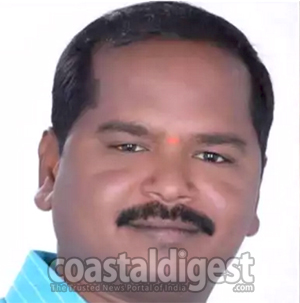Ballari, Jun 23: District BJP ST Morcha vice-president Bandi Ramesh, a criminal facing several charges, was killed at Guggarahatti on the outskirts of Ballari city on Thursday afternoon.
Ramesh, 42, and resident of Karimaramma Temple, Indiranagar, Cantonment, Ballari, was a close aide of B Sriramulu, Member of Parliament, Ballari. Police said he had gone on Thursday to Rampura with his followers to the neighbouring town in Chitradurga district.
When they were returning to Ballari, around 3.30pm, they stopped for lunch at Pavan Dhaba. When Ramesh and his supporters were busy ordering food, several people with lethal weapons rushed in and attacked them. They murdered Ramesh and fled in a four-wheeler.
Bandi Ramesh's brother Nagaraj, also involved in criminal activities, had been murdered by their enemies. After Nagaraj's death, Bandi Ramesh took over and had political ambitions. He often spoke about contesting any ST reserved constituency with the support of BJP leaders.
Recently, he was released from Ballari Central Jail on bail, with regard to an attempt to murder case, was in judicial custody for some days. While in jail, he chalked out his political future with his confidants.
S Murugan, IGP, Ballari Range, went to the murder spot. Police were deployed in Indiranagar, Devinagar, SP Circle, Kurihatti and other sensitive areas. After the postmortem, Ramesh's body was handed over to his family.
On Wednesday, he had been actively involved in the birthday celebrations of G Somashaker Reddy, former MLA and ex-chairman, KMF.






Comments
Criminal Party member, Criminal count down to the public
Add new comment